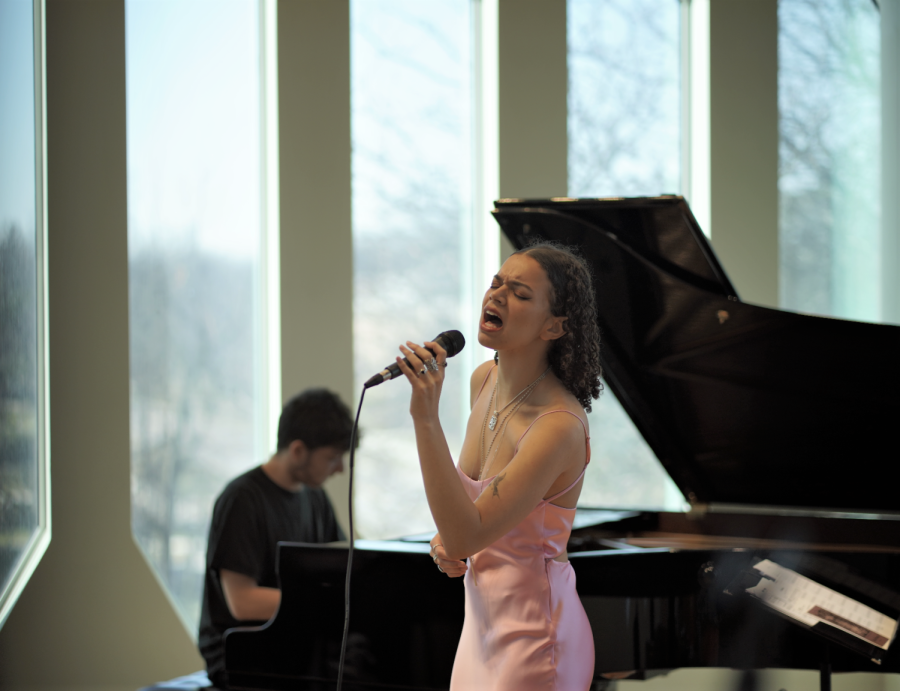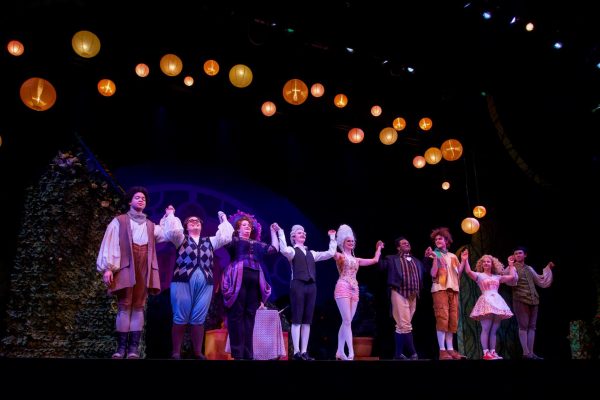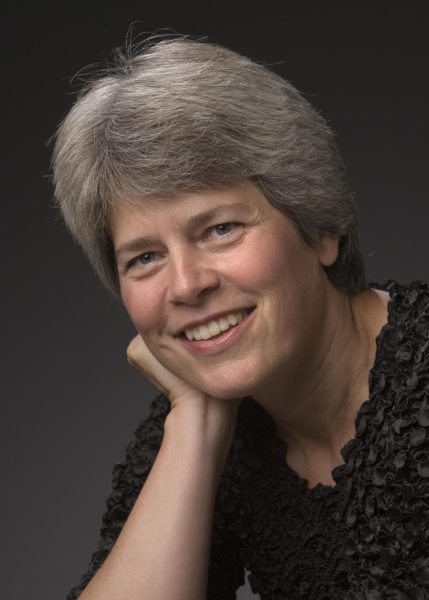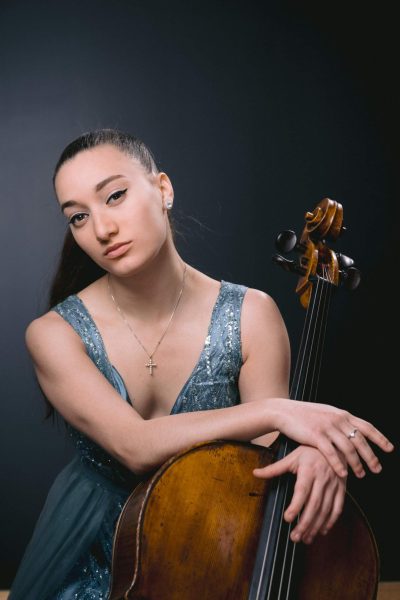Marley Howard: Jazz Vocalist, Artist, Activist
Marley Howard sings in David H. Stull Recital Hall.
Marley Howard is a third-year Conservatory student majoring in Jazz Voice and minoring in Studio Art. She incorporates protest and activism into her art. Her mediums include singing, poetry, printmaking, charcoal, ceramics, and paint.
This interview has been edited for length and clarity.
How were you introduced to protest music?
There was always a lot of music around the house growing up. My dad listened to a lot of reggae — a lot of Bob Marley, my namesake. A lot of Bob Marley’s music is protest music, so I was aware of it at a young age. Also, growing up biracial, my identity wasn’t something that was ignored. I knew I was Black, I knew I was born Black, I knew I was staying Black. My dad was like, “Life is unfair. You are going to get used to it.” So that was also kind of around me from a young age, and then I think it started getting incorporated into my music. I realized I had a knack for finding more obscure songs about these things that I related to in some way. Nina Simone was also played a lot in my house growing up, and she also performed a lot of protest music. She and Billie Holiday, who sang “Strange Fruit,” which is about the lynching of Black people in the South, really got me into jazz — or Black American Music, the more correct term. It wasn’t until I was about 17 or 18 when I started to experience very harsh or blatant racism, sexism, misogyny, and harm in ways that I hadn’t experienced growing up. So then I really dove into protest music, and I found a lot of power in listening to it and singing it.
How do you go about incorporating activism or protest music into your art and performances?
I feel fortunate to be here at Oberlin because you don’t get much pushback. I feel very fortunate to be in the position where I can sing a lot of protest music right now, and no one’s gonna tell me no. So really, it’s just finding the songs that I really connect with or think could be really powerful. It’s a lot of listening — it’ll be three o’clock in the morning, and I’m just listening to song after song from just this one person’s discography, and then it’s like, “Oh, I found something.” It’s not like I look up “best protest songs to sing” or anything like that. With visual art, it’s a slightly different relationship, because I feel like all of my art is inherently political, not that it’s always protesting something, but I think it’s political for me to put Black bodies on an art piece. I don’t draw a lot of white people. It’s just not something I’ve really been interested in doing. I think we’ve all seen enough white people in art, and I’m sure there will be enough people making white people in art. Especially growing up, I don’t think I saw Black people or Black representation in visual art. I also sometimes use text from songs in my art. Sometimes I’ll write things and put it into my art. Sometimes I have a hard time writing because I have so many things I wanna cover. It’s really just a matter of picking the issue and then being like, “Okay, I’m gonna do it and I don’t care what anyone thinks.”
What topics or themes do you discuss in your art?
Generally, I talk about womanhood and what that has looked like for me as a Black woman; mental health and having PTSD, anxiety, and depression; sexual harm and harassment. I can’t make or write about anything I haven’t experienced, so everything that I make is coming from a brutally honest perspective. These are the things that have happened to me and that I’m dealing with, and sometimes they are not pretty or cool. It’s a way of processing, I think.
Can you talk about the statement you made at Jazz Forum last Friday?
I wrote all the words we ever said and sang at that Forum. I was in a vocal quartet, so there were a lot of amazing musicians and we all helped pick the songs. I feel like I see a lot of white men playing Black American Music, which in and of itself is fine. This music is so important to me and the history of it is so important to me, but sometimes I feel like other people don’t care as much about the history of it, which is sad to watch. It can be really draining week after week to watch that, and so I think when we talked about making a statement, we wanted to say “We are here; we are taking up space.” When is there a chance to really say that to this group of people? There really is no other moment. I guess the statement of the piece and poem is, at least in my life, the people that have helped me get through the most difficult things in my life have mostly been not men — they’ve been women, nonbinary, and trans people that have said, “Okay, we got you.” I wanted to honor that and show that when we are together, we can dismantle things and create a more peaceful place. That’s protest music. We had the band members walk off the stage while we were still speaking the poem, and we put the mics down and kept going with the repeated line. It was a statement. I wanted to make sure everyone was listening.
Why is activism important to your art?
I think we have a society that’s constantly in a capitalist, workaholic state that dampers people’s creativity. Some people’s brains don’t work like that — my brain does not work like that. So I feel like to make art, you are inherently protesting society in that way. I also think protest in art is so important because if no one’s talking about something, you feel like you’re alone when that’s really not the case. If you’re experiencing it, so is the person five feet away from you. And I don’t think it’s meant for everyone to do, but I need to talk about why I am constantly being objectified or hypersexualized, or about sexual assault and how it has impacted me, or how racism has affected me as a mixed person, or how I feel like I am not accepted in any space because of my identity, or my mental health and PTSD. There was once a point in my life where I was like, “Why is no one else talking about it?” It’s so nice to see someone make art about these issues. You feel seen as an individual. I think what’s important to me in my art is that other people see themselves in it.






